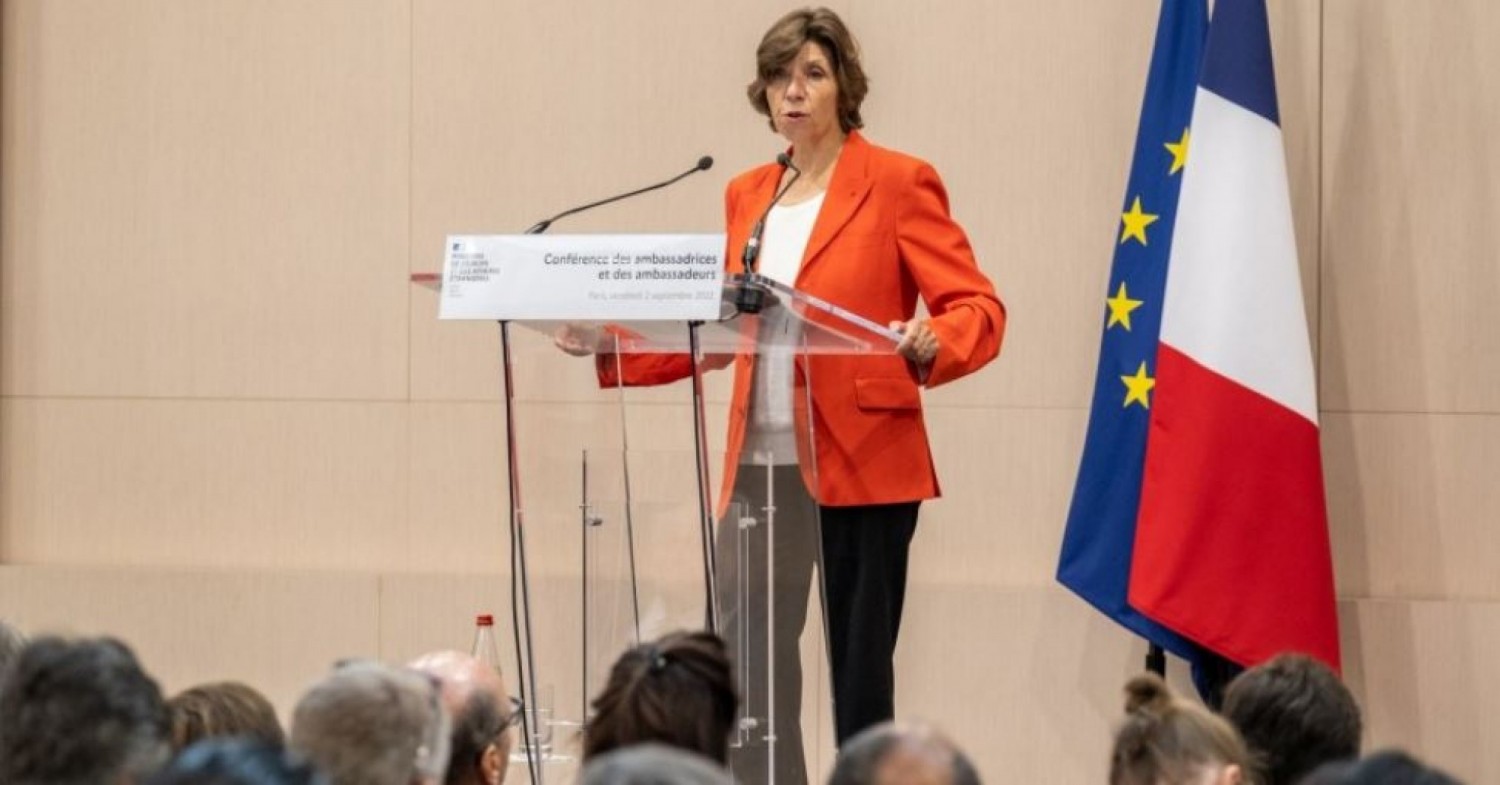Although most, if not all, Western states have sharply criticized Iran’s policy on many issues, recently however, France has taken on a more prominent role alongside the US. Whilst the US’s position is understandable, given that Washington is an opposing and involved party in several contentious issues with Tehran, an analysis of France’s position requires, first and foremost, an examination of its policy orientation on regional issues, vis-a-vis countries such Lebanon, as well as changes in the priorities of the French agenda in the region in the aftermath of the Russian-Ukrainian war.
Not only has France participated in the campaign led by many Western countries against Iran because of stalled nuclear negotiations, it has also focused on sharply criticizing Iran’s interventions in the Middle East, and its insistence on developing missile capabilities and drones. In his meeting with Israeli Prime Minister Benjamin Netanyahu on February 1, French President Emmanuel Macron confirmed France’s intention to work with Israel “in the face of Iran’s destabilizing activities in the Middle East.”
Notable change
In her interview with The Middle East, the second in one month, French Foreign Minister Catherine Colonna said that, “Iran is adopting systemic escalation in a crisis-ridden Middle East,” referring in this context to nuclear and missile programs, along with drone production, and direct threats posed by pro-Iran militia.
In this context, the French approach vis-à-vis Tehran reflects a significant change in policy. France was one of the first Western countries to seek relations with Iran, following the announcement of a nuclear deal on July 14, 2015 and the lifting of international sanctions in mid-January 2016. France even received former Iranian President Hassan Rouhani on 27 January 2016, less than two weeks after the sanctions were lifted. Substantial agreements were signed between the two parties, most notably with companies such as Airbus, Peugeot and Total.
Paris criticized former US President Donald Trump’s decision on 8 May 2018 to withdraw from the nuclear deal, and then impose US sanctions on Iran on 7 August of the same year. France even sought to open channels of communication between Washington and Tehran. This however has not prevented tension in France-Iran from reaching the point where France has had to adopt a more forceful policy towards Iran has been evident in recent statements by senior French officials.
French Foreign Minister criticizes missile program
Several motives
The shift in French policy towards Iran, particularly its increasing focus on the implications of Iran’s interventions in the region, can be explained in the light of several considerations, most notably:
- The Lebanese political crisis: In France’s view, Iran’s intervention in Lebanon is one of the reasons behind its continuing political crisis, which escalated at the end of former President Michel Aoun’s term without reaching consensus among Lebanese political forces on a new President. The current political vacuum, in parallel with disruptions in the formation of a new government, and obstructions in investigations of the Beirut port bombings.
France has hosted an international summit on Lebanon on 6 February, illustrating its interest to discuss the political deadlock in the country. Iran was not party to the summit, and responded duly with a corresponding visit to Beirut by Iran’s Deputy for Foreign Affairs, Ali Bagheri Kani, a day after a the summit, not to mention the earlier visit of Foreign Minister Hussein Amir Abdullahian to the Lebanese capital on 13 January. These visits have sent clear signals that Tehran is strongly present in Lebanon’s political deadlock despite all the pressures it is under in the current period.
- Escalating threats from Iran’s Revolutionary Guard: France understands that the Revolutionary Guard unofficially manages foreign operations through which Iran seeks to expand its regional influence, and even target the interests of its opponents at various levels. European states, including France, have begun to file charges against Sepah Pasdaran for attempts to target Iranian opposition in Europe, effectively threatening the security and interests of these countries and their influence in the region. This has led to the threat of including the Revolutionary Guard on the list of terrorist organizations, although the move has been delayed to preserve the chance of a new nuclear deal despite obstacles to this scenario.
It is noteworthy that on February 12, at the same time Iran was celebrating the 44th anniversary of the 1979 revolution, Paris witnessed a demonstration by the thousands, protesting the Iranian regime, and calling on European countries to categorize the Revolutionary Guard as a terrorist organization.
- The rising number of French detainees in Iran: French detainees in Iran is one of the most contentious issues between the two countries. After the number of incarcerations rose to seven French detainees, Foreign Minister Catherine Colonna sidelined her Iranian counterpart Hussein Amir Abdullhayan in the Baghdad II summit in Amman, Jordan on December 20, to demand the immediate release of French nationals from Iranian incarceration, and the cessation of Iran’s interventions in the internal affairs of states in the region.
Although the Iranian authorities released the French researcher (of Iranian origin) on February 11, who was subject to a sentence of five years’ imprisonment for “threatening the national security of the country”, it is unclear whether she will be allowed to travel to France. Even if that were to happen, this issue would continue to pressure relations between the two states and cause tension.
- Iran’s involvement in the Russian-Ukrainian war: Iran’s military support to Russia is evident in the manufacturing of Iranian drones used in Russia’s military operations in Ukraine. This has escalated tensions between Western countries and Iran. According to France, Iran’s involvement contributes to the continuation of war since it counters Western pressures on Russia. This is especially so given the energy crisis in Europe, which prompted several countries, with France in their lead, to seek new partnerships in the Middle East. Thus far, France has signed agreements with Algeria, in addition to developing relations with Iraq, whose Prime Minister Mohammed al-Sudani visited Paris on 26 January where, according to Iraqi reports, he signed the largest agreement in the history of relations between the two countries, a step that is most likely incompatible with Tehran’s calculations and interests.
Channels of communication
It is unlikely that France is to reach a level of escalation with Iran that may have negative repercussions on its interests in the region, as it is important to keep open channels of communication to achieve two main objectives. First, the release of French detainees in Iranian prisons is of particular importance for France. Secondly, maintaining relations is important in order to facilitate a new nuclear deal and avoid escalations between Iran and certain regional and international powers, such as Israel and the US, so as to prevent amilitary confrontation that would undermine French interests.


